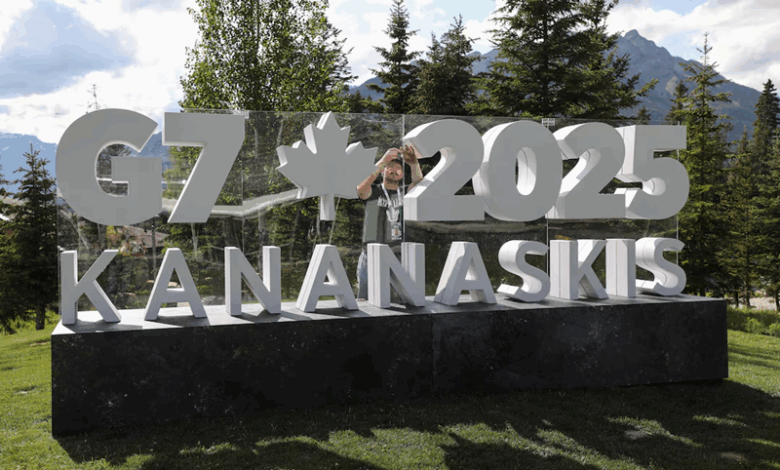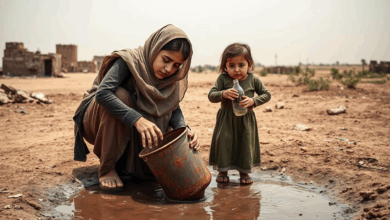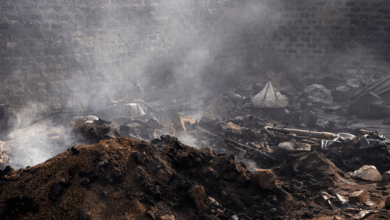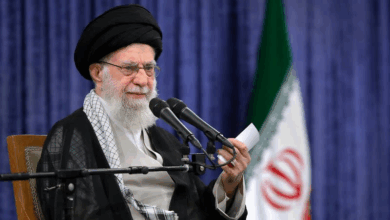G7 leaders in Canada to discuss Israel-Iran conflict, hope to avoid Trump clash
News Mania Desk / Piyal Chatterjee / 16th June 2025

Leaders of the Group of Seven will convene in the Canadian Rockies beginning Sunday, with the Israel-Iran conflict anticipated to be a key topic, as host Canada aims to steer clear of confrontations with President Donald Trump.
Canadian Prime Minister Mark Carney emphasizes that his main focuses are enhancing peace and security, establishing vital mineral supply chains, and generating employment. However, problems like U.S. tariffs and the disputes in the Middle East and Ukraine are anticipated to play a significant role in the summit.
Israel and Iran initiated new assaults against one another overnight into Sunday, resulting in numerous fatalities just hours before the leaders of the world’s developed democracies convene.
A G7 representative indicated that the leaders intend to release a unified statement regarding Iran, urging for de-escalation. German Chancellor Friedrich Merz informed reporters that his objectives for the summit are to prevent Iran from developing or acquiring nuclear weapons, guarantee Israel’s self-defense rights, avoid conflict escalation, and foster opportunities for diplomacy.
“This issue will be very high on the agenda of the G7 summit,” Merz said.
The summit takes place in the mountain resort of Kananaskis, some 90 km (56 miles) west of Calgary.
The last time Canada played host, in 2018, Trump left the summit before denouncing then-Canadian Prime Minister Justin Trudeau as “very dishonest and weak” and instructing the U.S. delegation to withdraw its approval of the final communique.
“This will be a successful meeting if Donald Trump doesn’t have an eruption that disrupts the entire gathering. Anything above and beyond that is gravy,” said Roland Paris, an international affairs professor at the University of Ottawa who was a foreign policy adviser to Trudeau.
Trump, who has often mused about annexing Canada, will arrive in Canada at a time when Carney is threatening reprisals if Washington does not lift its import tariffs on steel and aluminum.
“The best-case scenario … is that there’s no real blow-ups coming out of the back end,” said Josh Lipsky, chair of international economics at the Atlantic Council think tank and a former White House and State Department official.
Carney’s office chose not to provide any remarks on the impact of the Israeli strikes on Iran regarding the summit. Diplomats indicated that Canada has abandoned the notion of a conventional comprehensive joint communique, opting to release chair summaries instead, aiming to prevent a diplomatic crisis and sustain engagement with the U.S.
A high-ranking official from Canada informed journalists that Ottawa aimed to concentrate on joint actions that the seven nations – Canada, France, Germany, Italy, Japan, the UK, and the U.S. – could implement collectively.
Canadian Senator Peter Boehm, an experienced former diplomat who served as Trudeau’s personal envoy to the 2018 summit, stated he had been informed that the summit would extend beyond the typical duration to allow for bilateral discussions with the U.S. president.
Anticipated attendees for segments of the Sunday-Tuesday gathering consist of officials from Ukraine, Mexico, India, Australia, South Africa, South Korea, and Brazil. Japanese Prime Minister Shigeru Ishiba aims to convince Trump to eliminate trade tariffs threatening Japan’s auto industry after a sixth round of significant trade discussions in Washington on Friday.






